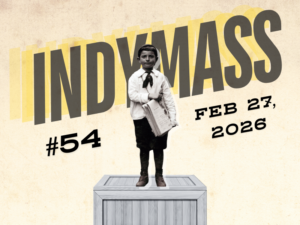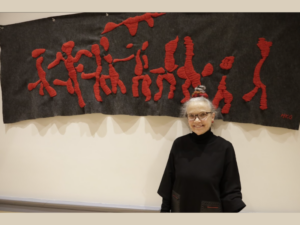The saga of gentrification in Somerville is playing out in the city’s youth sports leagues
Longtime volunteer Bob Schofield, well known to his neighbors for greeting Somervillians who show up in the stands for neighborhood baseball action, is frustrated. As the Somerville Youth Softball president who also helped launch the Babe Ruth baseball program for boys, he’s fed up with community athletics, petty politics, and most of all, with the city where he grew up circling the bases himself. Schofield’s not alone, with the commotion over changes in Somerville sports reaching a fever pitch as of late.
This past summer, Schofield says his goal was to develop the next crop of rising seniors. Instead, after being denied an opportunity to expand Babe Ruth in Somerville, the coach and mentor has grown increasingly suspicious of efforts to coddle the Show Baseball & Softball Academy, a program affiliated with the Amateur Athletic Union (AAU). Unlike his Babe Ruth and softball leagues, the AAU is a powerhouse with regional outposts that partner with the United States Olympic Committee.
According to Somerville Recreation Department Program Director George Scarpelli, in working with the AAU-related enterprise, the city is trying “to give the kids an opportunity to play at the highest level possible.” The Show, he adds, “is more of a tryout-based program, where kids have to make the teams by level of ability.”
Schofield scoffs. “I’m already providing what the Show is doing,” he says, defending the quality of Babe Ruth coaches. Along with others in his network, Schofield is concerned that the major league lure of the Show will result in misguided priorities, both for players and the city. Parents who play sidelines in the springtime aren’t alone in their gripes, as the conflict over baseball has become the latest in a string of similar scrums.
Whether or not Schofield is squeezing sour grapes, the youth sports struggle in Somerville seems to mirror larger issues around housing and affordability, and around who has access to what in the booming city. In a place where natives and lower-income earners are being displaced at an alarming clip — according to Zillow, the average home cost has jumped from $339,000 in 2009 to $517,000 today, with average rents surpassing the overall Boston Metro median cost of $2,500 a month — political debates around activities like football speak volumes. The formerly decrepit city now has spectacular sporting infrastructure, complete with Trum Field in its magnificent night-lit glory, but some are questioning why more and more tax money is going to activities for a special few. While a long-term master plan calls for creating more than 100 additional open acres in the next 15 years, at the moment Somerville remains strapped for space, with less than 7 percent of its approximately four square miles fit for frolicking. According to the state Office of Geographic Information, that’s less than any other Mass municipality.
Rather than address their logistical conundrums through teamwork and consolidation, as parents are complaining about everything from cost to oversaturation with new leagues joining the fray, officials seem especially focused on widening the professional career path for star jocks. Strange as that may seem considering the growing gap between haves and have-nots in Somerville, there appears to be unwavering support from politicians who are wildly enthusiastic and even ruthlessly competitive about youth sports.

BIG SHOW
Before Joe Curtatone ascended to the top of Somerville’s political pyramid, the Prospect Hill native displayed formidable chops on the football field himself in high school in the early ’80s. In the time since, he’s entertained pastimes about which he is passionate in his professional career, from traveling to Washington, DC, in 2011 to toast the Bruins Stanley Cup victory with President Barack Obama, to enthusiastically supporting First Lady Michelle Obama’s Let’s Move initiative. On one occasion, the mayor expensed $390 for New England Patriots tickets to his campaign account.
It seems Curtatone, who at one point simultaneously served as mayor and as an assistant football coach at Somerville High School, would like his hometown to become a world-class sports city on his watch and as his own sons bat through the system. Ask Schofield about the current talent pipeline in his programs, however, and he respectfully says, “None of those kids are going to get an athletic scholarship to play softball and baseball at any university, because you only get scholarships for Division I. We’re not good enough. We’re not quite there yet.”
Enter the Show, which promises to “give players the best opportunity to play college level baseball or beyond.” While Somerville’s Babe Ruth coaches, hired directly through the city’s rec department, include players from nearby Lesley University in Cambridge, their shiny new rival boasts the likes of former Red Sox catcher Steve Lomasney, as well as other former pros.
Some baseball parents who were interviewed for this story have come to accept the Show. Nonetheless, the ensuing rift between Babe Ruth and city honchos has intensified since Schofield threw an inaugural fastpitch softball tournament this past summer. The three-day competition received high marks from many players, while organizers say that almost all visiting teams have committed to next year’s event. The exception is the softball leg of the Show Baseball & Softball Academy. As revealed in a public records request filed by Schofield, a top administrator from the Show emailed the city to deride his rival, claiming — among other things — that both the Somerville umpires and players essentially stunk.
It’s a tale of two leagues. Babe Ruth Baseball charges less than $200 per year, and is in fellowship with the Somerville Recreation Department, which means that the municipality furnishes all facilities with taxpayer money. The Show, however, reportedly charges thousands of dollars per member (a spokesperson would not provide an exact number). As such, with an elite league consuming increasingly scarce resources, many residents have shown concern that such disparities reflect an enduring gentrification.
In an email response to questions about these matters, Scarpelli wrote, “The Show will actually be coming in to give all interested kids, not just kids who make the team, more advanced baseball training at a younger age … they will come in with their pro staff and give high-quality clinics to our youth such as hitting clinics, pitching clinics, which will support their development as players.” He added, “These will be offered through the Recreation Department, and our programs are always kept low cost and no one is turned away based on their ability to play.”
Nevertheless, Scarpelli claimed that he could not disclose the fee structure. He also wrote that “no one will be turned away as long as they follow the protocol set up by Recreation for fee waiver or discount” and claimed that he “will keep [the Show] accountable.” But detractors, many of whom declined to use their names due to a fear of retribution from the city, say not everyone would get to benefit, and argue that scholarships for AAU would decimate recreation budgets for critical youth programs.
“We only help those kids who can prove their financial hardship,” says David Mangan, president of the Somerville Youth and Recreation Foundation, which formed in 2006 to supplement rec programs. “I like AAU, but there are only a handful of kids we funded to play at AAU. There was one kid who plays baseball at an AAU team, but his father, I believe, was having a lung transplant, so we provided him with help.”
There also appears to be a conflict of interest. Curtatone and Scarpelli worked together coaching sports in Medford long before the former became mayor of neighboring Somerville and before Curtatone hired his old chum for $87,000 a year to run the rec department. At a recent campaign kickoff for Scarpelli, who is currently running for a Medford City Council seat, Curtatone called the coach and educator a close friend, and did the candidate the honor of introducing him to the crowd. Both Curtatone and Scarpelli were present, along with their sons, at the Show’s debut tryout at Dilboy Stadium last month.
In a sit-down interview that he eventually gave to address tensions between the Show and Babe Ruth, Scarpelli lamented the plight of MLB and DI hopefuls in Somerville. “Kids want to try out for AAU programs, but there isn’t a place yet,” he said. “They need to go to North Reading, or to the Show in Peabody and Lawrence. They leave our area if they can afford it.”
Curtatone was less willing to talk. Approached at the aforementioned Show tryouts in August, the mayor issued this reporter an ultimatum.
“I’m just having a good time with my kids,” he said. “If you keep asking questions about my kids, you are shut off.”
POP GOES THE WEASEL
Babe Ruth isn’t the only sports front in Somerville that’s shouldered outside pressure from competing alternatives. As was extensively reported in area newspapers and feverishly discussed by gossiping locals, in 2013 the city, with enormous fanfare from Curtatone, announced the creation of a new organization to be operated through American Youth Football (AYF). Out of nowhere, AYF stood to rival Pop Warner, which has traditionally run football in town.
“In our eyes, Somerville has done what they want to do to block Pop Warner every way they can,” local Pop Warner President Roger Desrochers told the Somerville Journal last year. “They’re acting like they’re accommodating our needs but they’re not.” In response to questions at the time, Somerville officials offered the same justification they are now giving for boosting the Show. Daniel DeMaina, a city spokesperson, told reporters, “It’s nothing against Pop Warner. It’s providing another option out there.”
For hardcore parents, Pop Warner has a major flaw compared to AYF; whereas the former parses players by their age and weight, AYF allows children of smaller sizes to advance with their peers. In any case, with the arrival of another league, Somerville Pop Warner was lowered to second-class status, with players given practice fields without proper goalposts or bathroom facilities. Officials went to great lengths to welcome AYF, even bucking aldermen who tried to block the league from using city funds. Following a yearlong grudge match, though, Pop Warner prevailed, with the Somerville AYF board disbanding this month after more than half its players quit.
According to Beverly Schwartz, a local representative of Pop Warner, “despite the many advantages that [AYF] had,” the league for which she roots has “only gotten stronger.” In a relatively small urban community like Somerville, she says, “there just aren’t enough kids to fill two football leagues,” and the addition of a second show means the “two leagues are going to be weaker.” Says Schwartz, “Having a program that’s designed to serve the few kids that could excel in a certain way … doesn’t seem to meet the good use of taxpayer funds.”
Meanwhile, in the search for unity and possible solutions, there have only been more disagreements. There is a spat over a proposed $500,000 turf field at Lincoln Park, which some believe presents significant financial and health burdens, while the longstanding Somerville Youth Soccer League stands to lose some bodies to another new private club in town.
In an email interview, a Somerville spokesperson wrote that the city “works to accommodate the needs of the full community and the wide range of sports that our residents and their children play that require field space.” Still, the turf war continues, with parents and officials facing off, and other elected pols who sympathize with Babe Ruth and Pop Warner families expressing anger over infringing elite leagues. In an open letter to the Show and Schofield last month, Somerville Alderman Matt McLaughlin wrote, “What we really need to do is organize all the youth sports teams to fight these encroachments on voluntary organizations.”
If it’s a fight they want, that’s what they’ll get.
“No solution is perfect,” according to Schwartz, the Pop Warner rep, who also argues that the “population at large” should take priority. As for whether Somerville should cater and cut checks for a select cadre to pursue the big leagues:
“I think not,” Schwartz says, “but the city makes it otherwise.”









